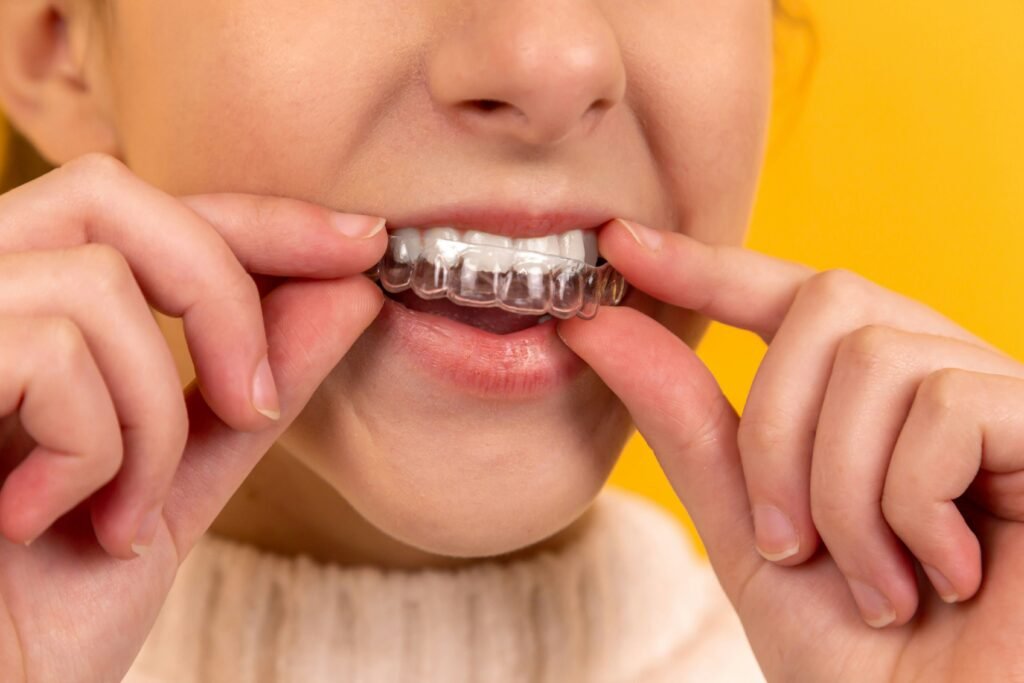Maxillofacial Prosthetics: Restoring Facial Harmony and Function After Surgeryor Trauma

Maxillofacial prosthetics is a specialized branch of dentistry focused on restoring facial
aesthetics, function, and comfort for individuals who have undergone surgery, trauma,
or congenital anomalies affecting the head and neck region. From facial prostheses to
obturators and speech aids, maxillofacial prosthetics offers a wide range of customized solutions to improve patients’ quality of life and restore their confidence. In this blog post, we’ll delve into the world of maxillofacial prosthetics, exploring its applications, benefits, and the transformative impact it has on patients’ lives.
Applications of Maxillofacial Prosthetics:
- Facial Prostheses: Facial prostheses are custom-made devices designed to
replace missing facial features, such as the nose, ear, or eye, resulting from
surgery, trauma, or congenital defects. These prostheses restore facial
symmetry, aesthetics, and function, helping patients regain their confidence and
quality of life. - Obturators: An obturator is a removable prosthesis used to close a defect in the
roof of the mouth (palate) caused by surgical removal of a tumor or congenital
deformity. It restores speech, swallowing, and masticatory function while
preventing food and liquids from entering the nasal cavity. - Speech Aids: Maxillofacial prosthetics also encompasses the development of
speech aids, such as palatal lift prostheses or speech bulbs, to improve speech
clarity and articulation in patients with palatal defects or velopharyngeal
insufficiency.
Benefits of Maxillofacial Prosthetics:
- Restored Facial Aesthetics: Maxillofacial prostheses are meticulously crafted to
closely resemble natural facial features, restoring facial symmetry and aesthetics
for a more harmonious appearance. - Improved Function: By restoring missing or impaired facial structures,
maxillofacial prosthetics enhances essential functions such as speech, chewing,
swallowing, and breathing, improving patients’ overall quality of life. - Enhanced Confidence and Self-Esteem: Maxillofacial prostheses help patients
regain their confidence and self-esteem by restoring their appearance and
enabling them to engage in social interactions and daily activities without self-
consciousness or discomfort.
The Maxillofacial Prosthetics Process:
- Comprehensive Evaluation: The process begins with a thorough evaluation of the
patient’s medical and dental history, along with a detailed assessment of their
facial anatomy and treatment goals. - Customized Treatment Plan: Based on the evaluation findings, a customized
treatment plan is developed to address the patient’s specific needs and
preferences, outlining the type of prosthetic device and treatment approach
required. - Prosthesis Design and Fabrication: The prosthetic device is designed and
fabricated using advanced digital technologies and materials to ensure a precise
fit, optimal aesthetics, and functional performance. - Prosthesis Fitting and Adjustment: Once the prosthetic device is ready, it is
carefully fitted to the patient’s facial contours and adjusted as needed to achieve
optimal comfort, function, and aesthetics. - Patient Education and Follow-Up: Patients receive comprehensive education on
how to care for and maintain their prosthetic device, along with ongoing follow-
up care to monitor its performance and address any issues or concerns.
Conclusion:
Maxillofacial prosthetics plays a vital role in restoring facial harmony, function, and
confidence for individuals who have experienced facial trauma, surgery, or congenital
anomalies. Through customized prosthetic solutions tailored to each patient’s unique
needs, maxillofacial prosthetics helps individuals reclaim their quality of life and
embrace life with renewed confidence and dignity. If you or a loved one could benefit
from maxillofacial prosthetic treatment, consult with a qualified prosthodontist or
maxillofacial prosthetist to explore your options and take the first step towards facial
restoration and transformation.
